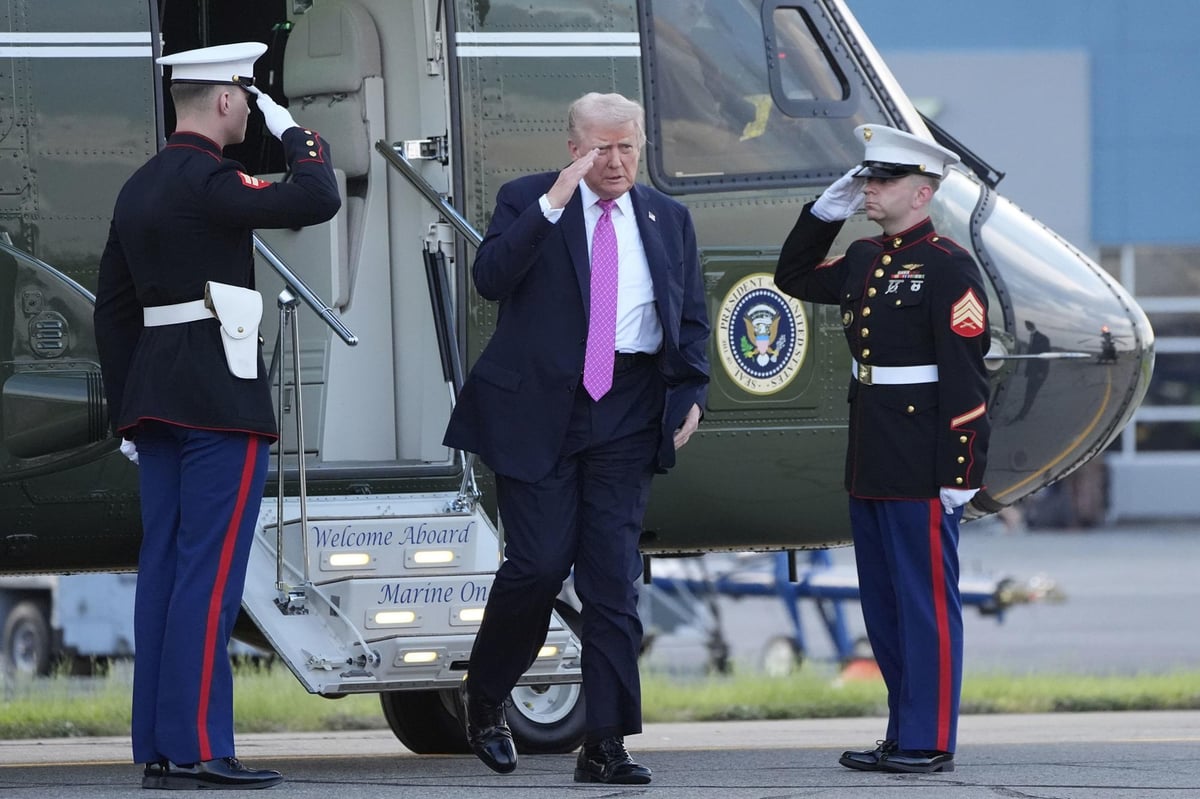Ian Ellis: UK’s reticence over religion in politics is absent in Trump’s America where there is no squeamishness about politicians expressing their faith
By Ian Ellis
Copyright newsletter

Mr Trump’s first state visit here was in 2019. He thus has become the first elected politician at least in the modern era to be granted two such visits. The King’s letter of invitation was dramatically delivered from Sir Keir Starmer’s jacket pocket during the prime minister’s White House visit on February 28 last. It has been widely regarded as a move designed to curry favour with the unpredictable US leader. Indeed, John Bolton, a former national security adviser in Mr Trump’s first term as president, but now seriously critical of him, has even speculated in a Sky News interview that this may have to be an annual occasion to keep in the president’s good books. Of course, it is all about politics and diplomacy, and there is no doubt that the Royal Family has immense soft power in world affairs. Just think of the impact of the state visit by the late Queen Elizabeth to the Republic of Ireland in 2011. Sir Ed Davey was asked about this recent decision by journalist Nick Robinson on the BBC’s Today programme. Responding, Sir Ed said that he wanted to protest that Mr Trump, who he said is the only person in the world who could bring sufficient pressure to bear on Israeli prime minister Benjamin Netanyahu to change the catastrophic humanitarian situation in Gaza, has not done so. Yet, Mr Robinson also pushed Sir Ed to comment on an article he had written in The Guardian newspaper, in the course of which the Liberal Democrat leader wrote that he had prayed about the matter before making his decision. It seems that nowadays any politician who speaks of praying about an issue is felt by some people to be doing something extraordinary. It is almost as though there is felt to be something dangerous about people who have political power in the democratic world allowing their faith to influence them. Sir Ed told Nick Robinson that, because he had struggled with the issue of the invitation, not least on account of his deep respect for the King, he simply had to pray about it, adding that he is a Christian and that he and his wife very regularly attend their local church. He continued: “My faith is very important to me and to my wife. And although other people say religion doesn’t impact your policy, it does impact mine. I don’t talk about it very much. But on this I had to be very honest. I’ve thought and prayed about this. I really have.” There was also somewhat of a hullabaloo when former health secretary Sajid Javid indicated in 2022 that, influenced by a sermon he heard at a parliamentary prayer breakfast, he had decided to stand down from office, thereby starting a wave of resignations that ultimately led to the fall of one Boris Johnson. Premier Christian news reported at the time that Mr Javid had said he had been wrestling with his conscience over the political situation for months but that a sermon delivered by the Rev Les Isaac, the founder and CEO of Ascension Trust and also a pioneer of Street Pastors, had prompted him to take action. Mr Javid was quoted: “I made my decision then, sitting there listening to his sermon, and I just thought, it’s about integrity, it’s about a duty. If you haven’t got confidence in the boss, you owe it to yourself and the country to tell the boss nicely that you can’t serve and that was it.” Then again, in 2017 former Liberal Democrat leader Tim Farron resigned due to controversy over his mainstream Christian beliefs. The BBC reported at the time that Mr Farron had said he was passionate about defending the rights and liberties of people who believed differently to him, but also had said he had been the “subject of suspicion” because of his own beliefs. The broadcaster also indicated that during the previous election campaign, Mr Farron had repeatedly been asked in media interviews about his views on gay sexuality. It is paradoxical that in the UK, where the Church of England and the Church of Scotland are by law established, although in somewhat differing terms, there is this squeamishness about faith being expressed by politicians, while in the US, where the First Amendment to the constitution prohibits such establishment, the opposite is the case. Which leads to the question as to whether any denomination should be established by law. The House of Commons library points out that prior to 1871, each of the four nations in the UK had an established church, with the Church of Ireland and the Church in Wales being disestablished in 1869 and 1914 respectively. I recall in my student days being in a group engaged in conversation with the then Archbishop of Canterbury, Michael Ramsey, and asking him whether or not he considered establishment a good thing. I remember his answer so well. He said it has pluses and minuses. He was an Anglican, after all. l Canon Ian Ellis is a former editor of The Church of Ireland Gazette



